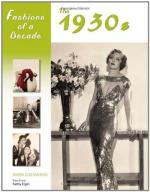|
This section contains 155 words (approx. 1 page at 300 words per page) |

|
Critics of the commission's work seized on Beard's decidedly non-Marxist use of the term collective and attacked the commission as communistic, especially following the 1934 publication of the commission's Conclusions and Recommendations. In the politically charged Depression, even some commission members found Beard's goals objectionable. Merriam and Day refused to sign Conclusions and Recommendations. Political attacks were mounted against commission members. Commission secretary Ballou, superintendent of the schools in Washington, D.C., was ordered to appear before a congressional committee and subjected to relentless grilling by anticommunist Representative Thomas L. Blanton of Texas. The Hearst newspapers made an anticommunist sensation of the commission's work. The most damning complaint against the Conclusions and Recommendations, however, was that they were sweeping and vague, of little use to teachers in the classroom. Yet as a statement of educational objectives Conclusions and Recommendations remains an important document of a decade when teachers...
|
This section contains 155 words (approx. 1 page at 300 words per page) |

|




